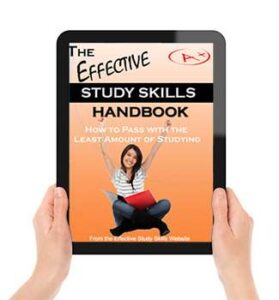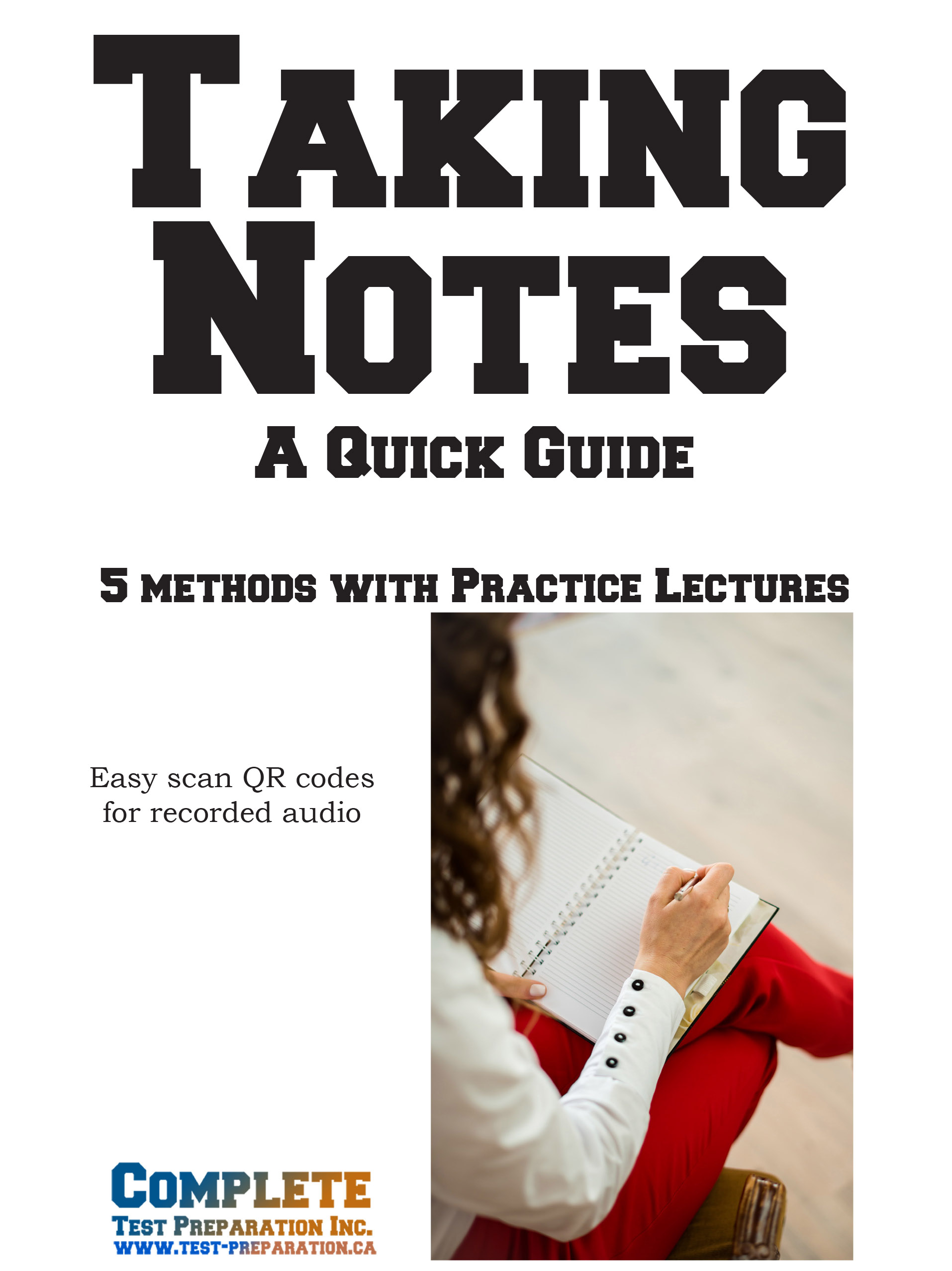Learning, Studying and Types of Tests – Do’s and Don’ts
- Posted by Brian Stocker
- Date April 10, 2018
- Comments 1 comment
Regular Tests in College
The learning process is a complex system, and part of it is the assessment or evaluation of your progress, which is done through tests and standard exams. College tests are design to measure a variety of things such your fitness for a program of study, and your overall progress learning the material.
There are categories of tests according to where you are in the learning process.
Audio Version of this Post
Pre-assessments or Entrance tests
These are very common for entrance to private school, Colleges and Universities. This kind of test evaluates your previous knowledge and your baseline skills. It measures your natural capabilities for specific tasks and compiles information about you. The teacher uses this information to design teaching strategies that are best suited to you. It’s also used to compare with previous tests and students and evaluate the progress.
Of course, there are many tools and techniques to apply a pre-assessment. One of the most common is to compare the first and last tests taken. This assesses the knowledge that the students have acquired over the course of the school term.
The Entrance tests, while they may seem difficulty and perhaps unnecessary, they really do help the school, the teachers and students. If you enter a College program that you are not able to complete, that doesn’t work for anyone. Colleges and schools don’t want that and neither do you.
Do you best with the tips below and preparing for the test. If you don’t get accepted, that is frustrating but in the long run, it is best for everyone, and you will find another program that you are suited for, and excel in that.
More Information, High School Tests
Formative assessments
These tests are the ones apply during the academic period, and are design to monitor your progress. Quizzes, short tests and practice tests are types of formative assessments. And basically, theses tests indicate to the professor if the students understand the topics already covered, and are ready for the next, or if the students need more time to study the topic. So, it helps the teacher to track the learning process and correct it if necessary.
Difference between a quiz and a test
Taking a Test? We can Help!
Summative Assessments
Better known as midterms or final exams, these are applied by the end of the academic period and are the most infamous type of test. Here, you must demonstrate the topics covered during the period. So generally, they are synonyms of long and stressful nights of studying. The professor uses these tests to verify if the students acquire the minimum knowledge required to past to the next level.
Learning from the Good and the Bad
Tests have a bad image between the students; they are usually related to sweat, frustration, and in some cases triumph.
Superficially, tests seem to be useful for the teachers only, as a tool to measure and register the development of students. But, what about the students? Well, whether you believe it or not they can benefit from the test too.
Don’t Fight Reality
Students generally resent tests, and with good reason. After all, many people do not test well, and they know the grade they end with does not accurately reflect their true knowledge. It is easy to feel resentful because tests classify students and create categories that just don’t seem fair. Face it: Students who are great at rote memorization and not that good at analyzing material often score higher than those who might be more creative thinkers and balk at simply memorizing cold, hard facts. It may not be fair, but there it is anyway. Conformity is an asset on tests, and creativity is often a liability. There is no point in wasting time or energy being upset about this reality. Your first step is to accept the reality and get used to it. You will get higher marks when you realize tests do count and that you must give them your best effort. Think about your future and the career that is easier to achieve if you have consistently earned high grades. Avoid negative energy and focus on anything that lifts your enthusiasm and increases your motivation.
Taking a Test? We can Help!
The Test as “Self-Teaching”
To learn is not just about studying to answer some questions. There are complex process taking place while you’re learning, and for it to be effective, is necessary to take every step of the process. One of these steps is the reaffirmation and fixation of the knowledge. This is what happens when you answer a question on a test; you are using the information you have learned in a practical way, so your brain stores it as something that you “know,” and not simply as something you “read once,” So, in this process your brain organizes the knowledge in an effective way.
So tests, while they may be unfair to certain types of students are an important part of the learning process.
Learning something has many steps, and as mentioned above, you have to go through each one. Skipping steps in the process, which means skipping over something you don’t understand, short-circuits the learning process and it will come back to haunt you! This is one of the biggest study tips:
If you don’t understand something, don’t skip it – make sure you understand all the steps!
Learn from Mistakes
But how do you learn from a mistake? It’s difficult, especially because bad grades are frustrating, and a bad grade despite a long week of hard study is even more disappointing. Still, it’s possible to learn from them; in fact, learning from mistakes is one of the most powerful study skills you can develop!
The first step to learn from your mistakes is to overcome the frustration. Is normal to feel it, so feel it and then get over it. Once you pass the frustration you can concentrate on understanding why you made this or that mistake. This way you can find the source of the problem and correct it, so you won’t make the same mistake again.
Tips for a Test
Every student is an individual, and as such everyone has its own perspectives and process. Try different things and find the methods that work for you. Here some tips that many students find works for them.
Also see our How to Prepare for a test – The Ultimate Guide
See also Learning Styles
What you should do.
– Attend to class and focus. Showing up for class and paying attention is absolutely necessary.
– You must be willing to invest time and effort. It’s simple, you cannot learn if you don’t concentrate and commit to the study. If you are focused then your time will be worth it, if not then is a waste.
– Isolate from distractions. Once again, you must focus. So look for a place where you won’t be interrupted and where you can fully concentrate in your task.
– Discipline. You’ll evolve according to the effort you invest, so it’s important to have discipline and be responsible; study every day, don’t procrastinate, do the homework on time. All of these depend on the discipline you have with yourself.
How do you develop discipline? Start off small and build. For example, start off with a 20-minute study session, and increase the the time each time.
– Have initiative. Don’t wait for the teacher to tell you what to do; go to the library, do some research, read about the topic you’re studying. But still be careful, you don’t want to overload your brain.
– Study your study manners. Sometimes we adopt study methods from a school mate or from recommendations. This methods could work for you too, but you should take into account that not because it works for someone else it means that is going to work for you too. Everybody has its own ways, and you should take from these influences and develop a method that works for you.
– Review your past mistakes. Your past mistakes shouldn’t be part of the past; you should review them and make sure you won’t stumble with the same stone twice.
– Ask your professor. He or she is there to help you in your learning process, is meant to be your guide and backup. So don’t be shy and reach for help when you are in need. Maybe a simple explanation can get you out of a hole and help you progress.
– Always check your test. The nerves can betray you; during the test you might feel that there’s just not enough time and rush your answers. Take a deep breathe and remember that a double check can fix a dumb mistake.
What you Shouldn’t do
Here are some of the most common mistakes to make, before and during a test.
– Don’t do the same thing hoping for different results. If you aren’t getting the grade you are looking for maybe there is something in your studying routine that is just not working. Review it and make the changes you think you have to make, or ask your teacher for suggestions on how to improve your grades.
– Skip class to study for other classes. Every class has its specific importance, don’t underestimate any of them.
– Lose control to panic. Nerves are normal, but don’t let them get the best of you. Keep them under control and show your capacity at its full.
– Underestimate the directions of the test. You can lose so many points for the dumbest reason: you didn’t do what was asked of you. Read the directions slowly and carefully, so you can answer what you have to. You might answer something correctly, but if it’s not what you were asked then is incorrect.
– You didn’t plan your time. It’s important to read the test and make a schema of what will be answer first. This way you can distribute your time more effectively. Don’t forget those minutes for double check at the end, it can save you some deceptions. In these few minutes you can correct errors or rewrite something you weren’t too sure about.
– You don’t understand the theme. Realizing this in the middle of the test is terrible, because is too late to solve it. So, any doubt that comes up in class or while studying must be attendant to. Otherwise it can become a huge setback. Be prepared, study and clear all your doubts.
– You’re not sure about your answer. Second guessing is not always good, it makes you feel insecure about all the other answers. Don’t forget that nerves can play you a bad joke, if these happens take a break, focus in another questions and come back to this later. This way your brain won’t get stuck worrying about one answer.
– Study the wrong topic. This is really bad. And if this happens to you it shows you lack of discipline and focus. The teacher can argue that you weren’t paying attention, or you are not interested, and actually she or he would be right. Pay attention to what you are doing and concentrate to do your best.
– You felt tired. Brain processes demands lot from the body, so is part of good study habits to eat well and have enough sleep, especially when you have a test coming up soon. Giving your body the rest it needs demonstrates a great sense of responsibility.
How to Study

… without endless hours of cramming
… without the need for tutoring
… and without sacrificing the things that matter to you!
Multiple Choice Secrets!

How to Take Notes
Learn 5 Note Taking Methods – With Full Explanation and Examples!
Taking notes is an essential academic skill and you will be doing a LOT!
Learn More and Start Practicing
Date Published: Tuesday, April 10th, 2018
Date Modified: Tuesday, May 21st, 2024
Created by Brian Stocker and the team in Victoria, BC.
Helping students succeed since 2005
Got a Question? Email me anytime - Brian@test-preparation.ca
You may also like
Five-Day study plan – Ready for Blast Off Day!
Going into my senior year, one could assume that I am well experienced in the subject of test-taking, yet if anything, life has taught me that one can always learn more. My recent conversation with a friend helped me to …
How to Take a Test — the Basics How to Take a Test – 2 Common Mistakes on a Test – and how to avoid them! Written by, Brian Stocker MA., Complete Test Preparation Inc. Date Published: Monday, March 4th, …



1 Comment
Your content is very interesting and useful. I am a dean at a small college.